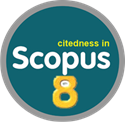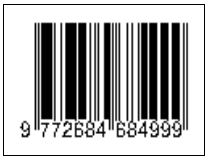Power and Knowledge of Double Entry Bookkeeping System in the Feminism Framework: A Proposal
Abstract
This paper attempts to explore and reveal the power and knowledge of double-entry bookkeeping system from a different perspective of the feminist framework and to propose new power and knowledge of accounting. Power is defined as the ability of a person to do his own will in social interaction, despite there is a resistance. Accounting as a social science has three powers: the first is the power of resources, the second is the power of process, and the last is the power of meaning. Historically, the power and knowledge of double-entry bookkeeping has been understood as the sexuality of life represented by male energy. So the power- knowledge of accounting represents rationality and masculinity. This narrow accounting understanding is challenged by feminism-radical, liberal, and postmodernism, which see accounting practices as inequality for women. To develop new power and knowledge of accounting, this study used the Hegelian method: thesis-antithesis-and-synthesis of emancipatory accounting. Accounting can be liberated by going beyond accounting itself to a new accounting that is freer than the matter of the norm. Accounting can reflect value other than material and capitalism that is by taking into account the society and environment values. This article proposes that what we need now is not the power-knowledge on rationality, masculinity or even femininity, but the power-knowledge on “self” that can conquer oneself.
Downloads
References
Carmona, S., Ezzamel, M., and Gutierrez, F. (2004). “Accounting History Research: Traditional and New Accounting History Perspectives,” Spanish Journal of Accounting History, No. 1, p. 24-53.
Chwastiak, M., and Young, J.J., (2003). “Silence in Annual Reports,” Critical Perspective on Accounting, No. 14, p. 533-552.
Dillard, J.F. (1991). “Accounting as a Critical Social Science,” Accounting, Auditing, and Accountability Journal, Vol. 4, No. 1, p. 8-28.
Funnell, W. (2001). “Distortions of History, Accounting, and the Paradox of Werner Sombart,” ABACUS, Vol. 37, No. 1, p. 55-78.
Gallhoper, S., and Haslam, J. (2004). “Accounting and Liberation Theology: Some Insights for the project of Emancipatory Accounting,” Accounting, Auditing, and Accountability Journal, Vol. 17, No. 3, p. 382-407.
Gibbs, G., (2011). “Postmodern Feminism in 3 Pages,” available on line di: http://freepages.genealogy.rootsweb.ancestry.com/~gilliamgibbs/writings/pmf.html, diunduh 11 Desember 2011.
Hines (1989). “The Socio-Political Paradigm in Financial Accounting Research,” Accounting, Auditing, and Accountability Journal, Vol. 2, No. 1, p. 52-76.
Hoskin, K.W, and Macve, R.H. (1986). “Accounting and the Examination: A Genealogy of Discipline Power,” Accounting, Organization, and Society, Vol. 11, No. 2, p. 105-136.
Lee, T. (1995). “The professionalization of Accountancy,” Accounting, Auditing, and Accountability Journal, Vol. 8, No. 4, p. 48-69.
Mahadevan, J., and Phil. (2011). “Power – Knowledge in Postcolonial Settings: The Case of IT Bangalore,” Interculture Journal, No. 13, p. 61-81.
Nasr, S.H. (2010). Islam in the Modern World: Challenged by the West, Threatened by Fundamentalism, Keeping Faith with Tradition, Harper One. New York.
Nasr, V. (2009). The Rise of Islamic Capitalism: Why the New Muslim Middle Class is the Key to Defeating Extremism. Free Press, New York.
Rigby, E. (1993). “Accounting, Sexual Repression, and Pacioli,” Accounting and Finance Working Paper 93/09, School of Accounting and Finance, University of Wollongong Research Online.
Shaoul, J. (2003). “A Critical Financial Analysis of the Private Finance Initiative: Selecting a Financial Method or Allocating Economic Wealth?” Critical Perspective on Accounting, Article in Press, p. 1-31.
Suryaningrum, D.H., (2011). Sikap Sosio-Spritual Dalam Akuntansi Kontemporer: Telaah, Tantangan Dan Imajinasi Diri, AKRUAL, 3 (1), 38-58. DOI. http://dx.doi.org/10.26740/jaj.v3n1.p38-58
Suryakusuma, Julia, (2010), Jihad Julia: Pemikiran Kritis dan Jenaka Feminis Pertama di Indonesia, Qanita – Mizan Pustaka, Bandung.
Wickramasinghe, D. (2006). “Power and Accounting: A Guide to Critical Research,” in the book of Methodological Issues in Accounting Research: Theories and Methods, editor: Zahirul Hoque, Spiramus, London – UK.
Copyright (c) 2019 Diah Hari Suryaningrum

This work is licensed under a Creative Commons Attribution 4.0 International License.














